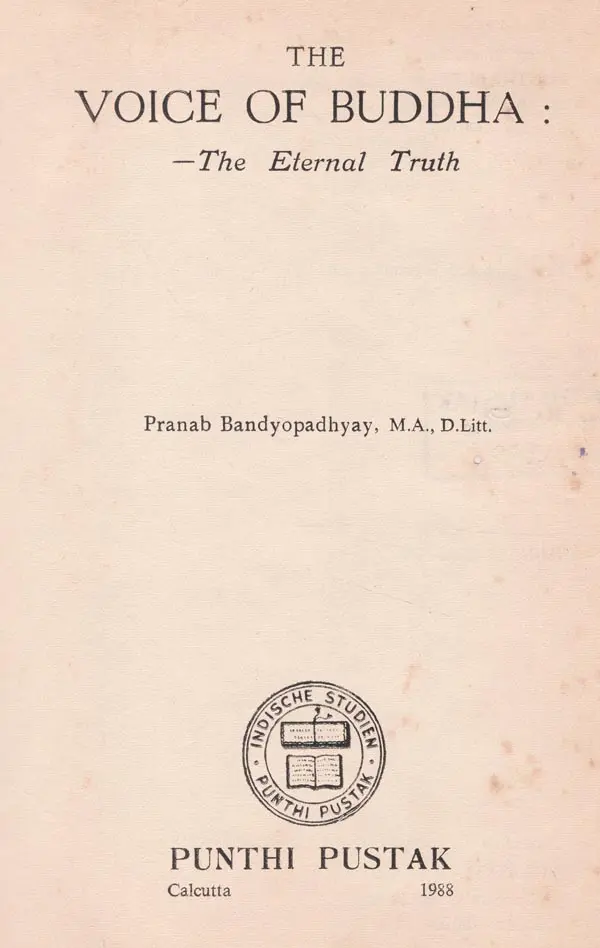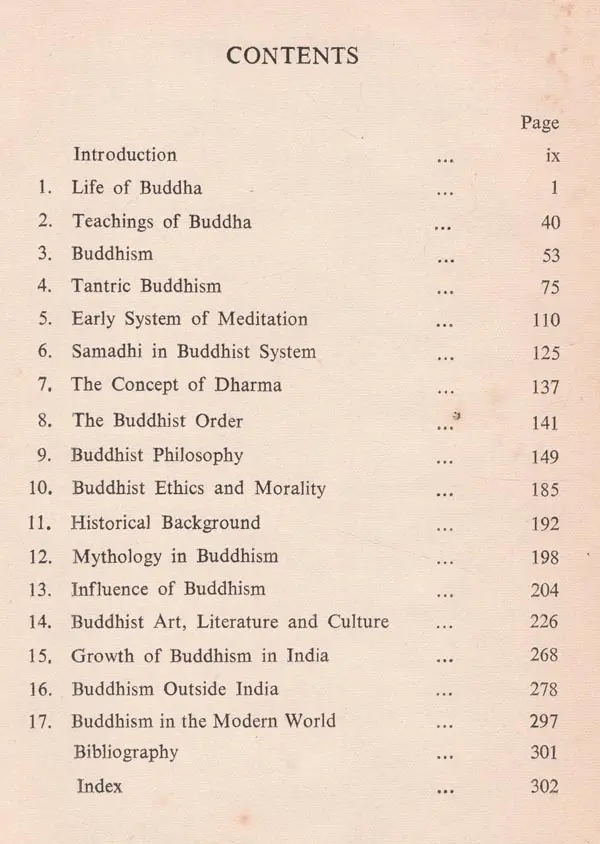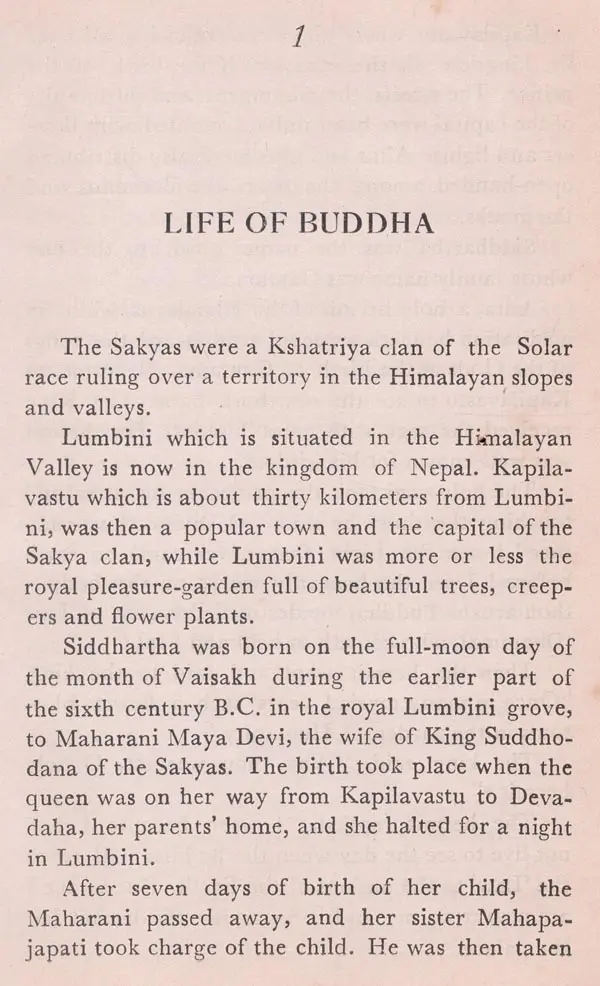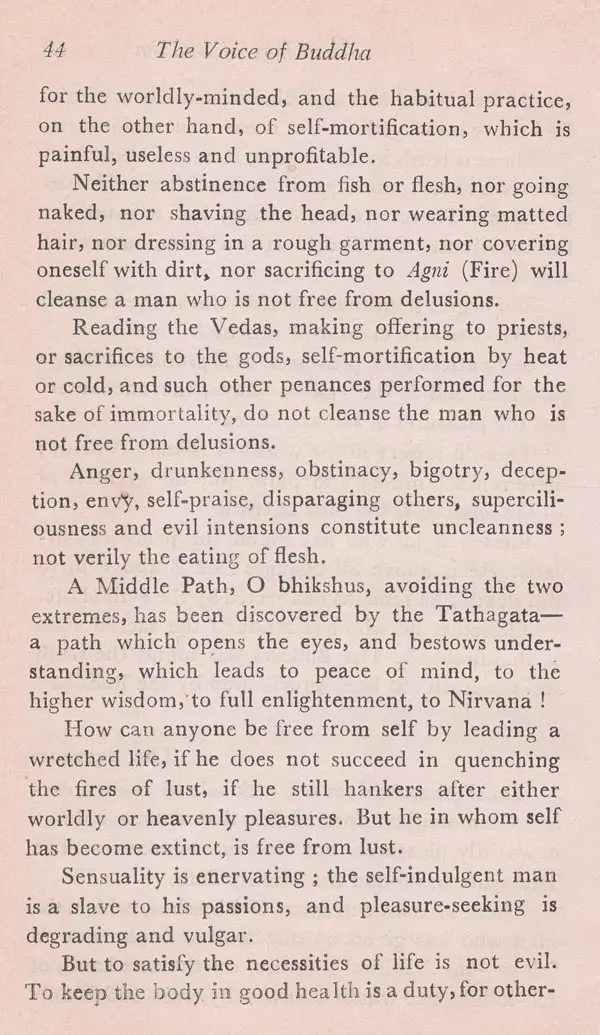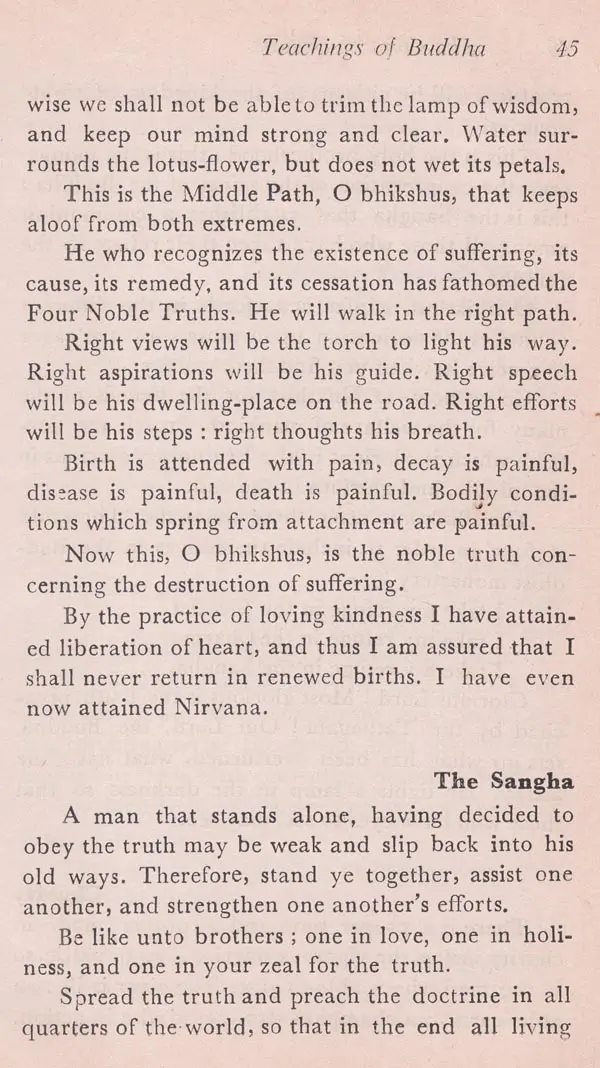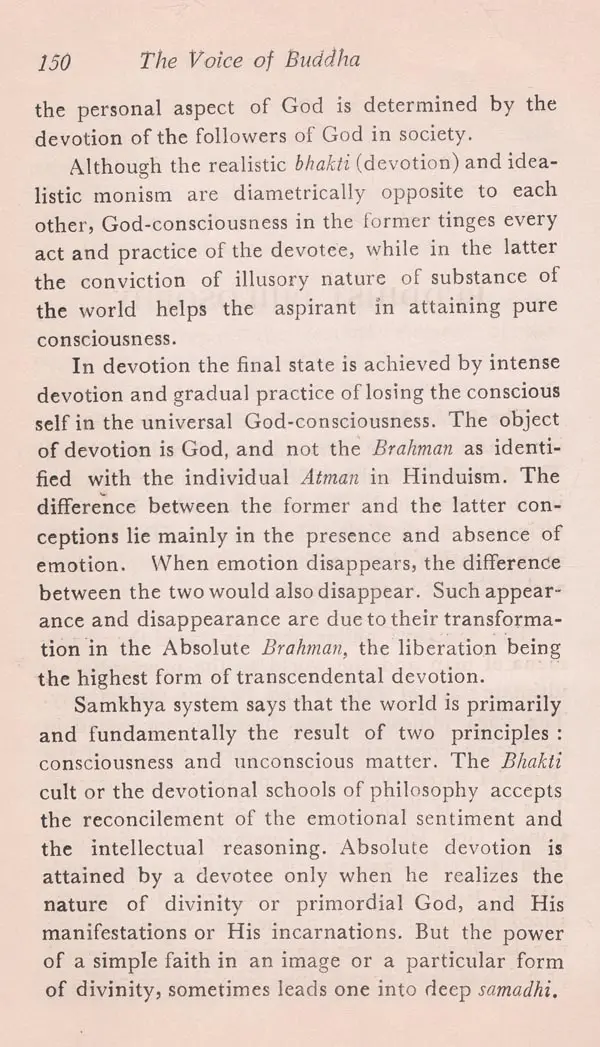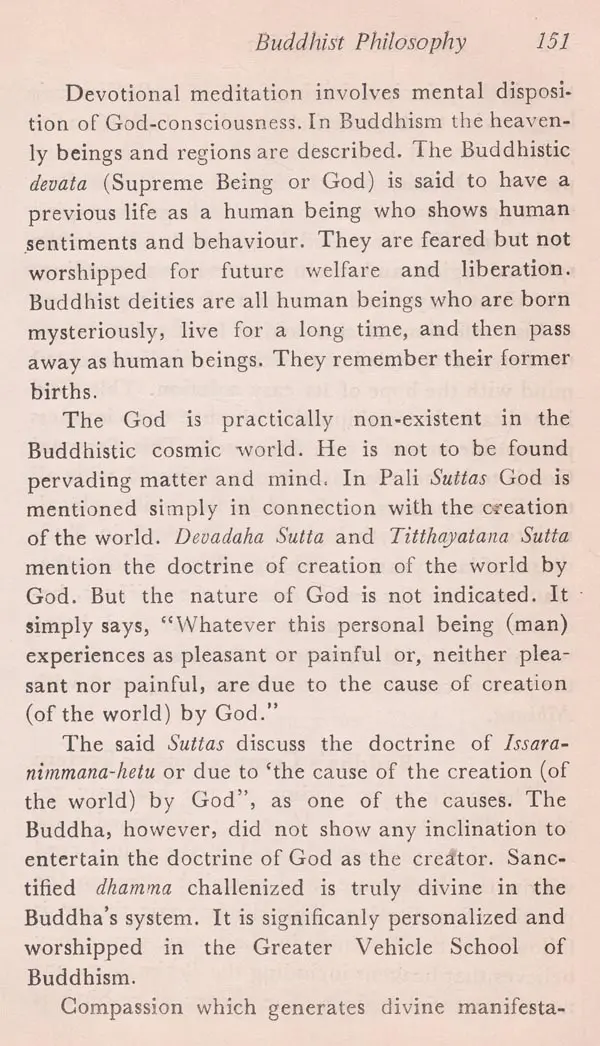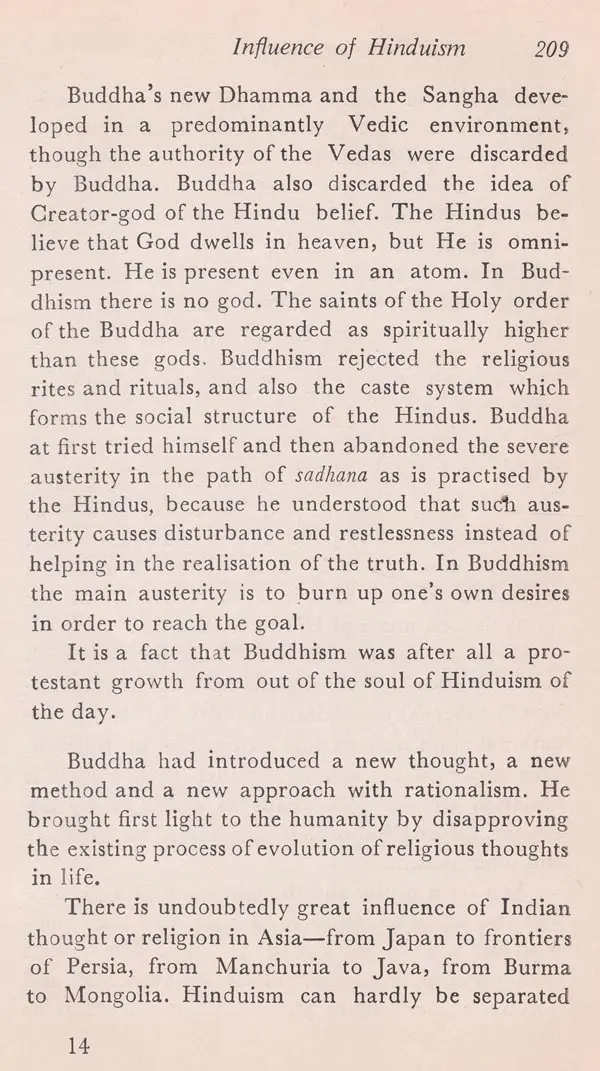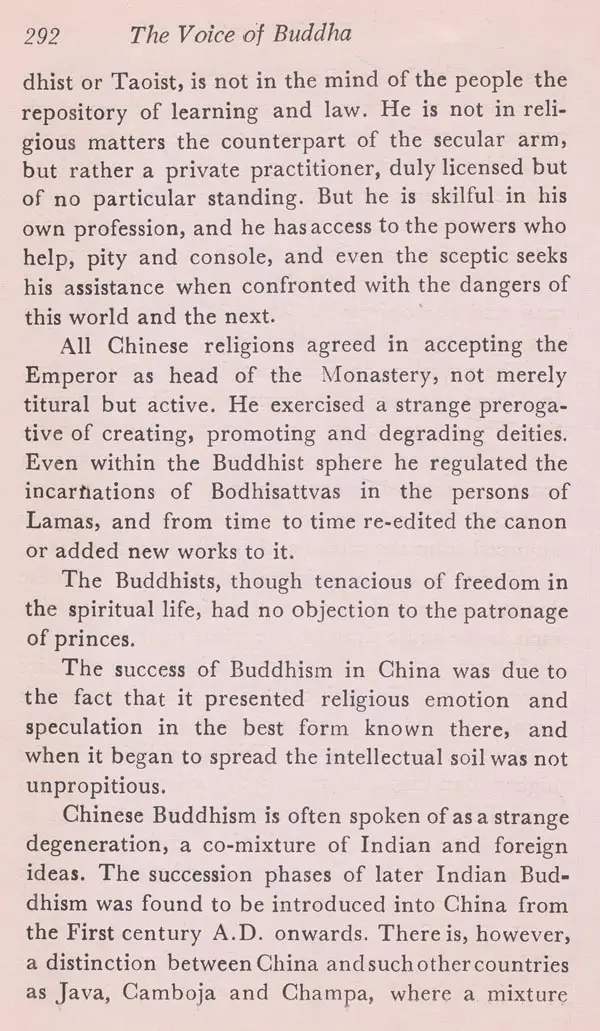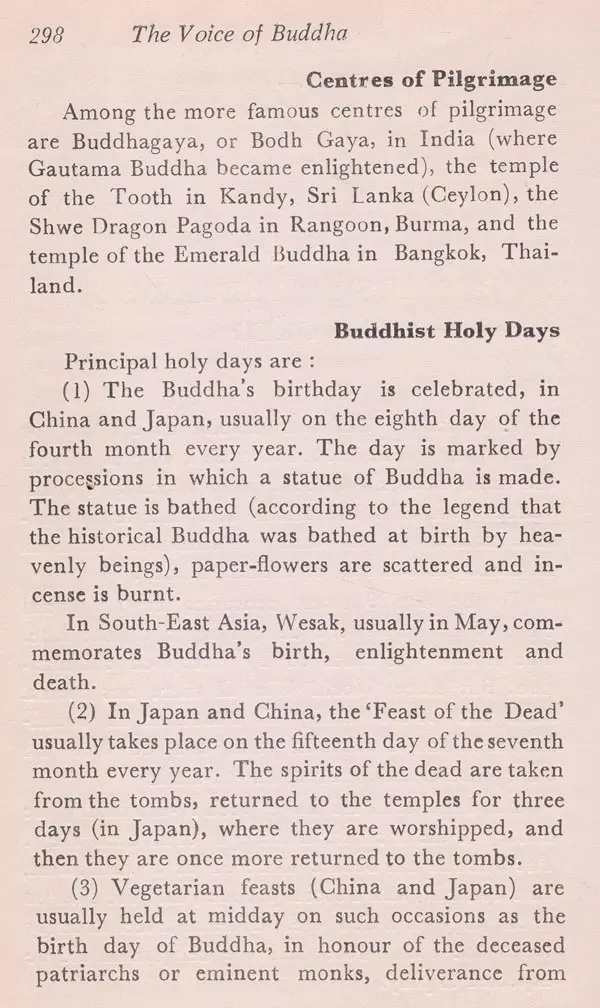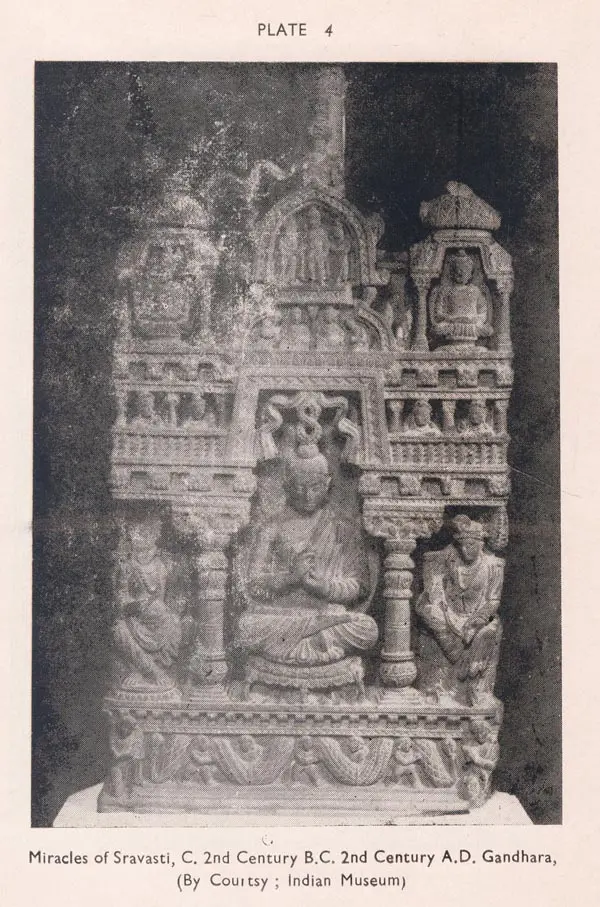
The Voice of Buddha: The Eternal Truth (An Old and Rare Book)
Book Specification
| Item Code: | UBE042 |
| Author: | Pranab Bandyopadhyay |
| Publisher: | Punthi Pustak, Kolkata |
| Language: | English |
| Edition: | 1988 |
| Pages: | 324 (Throughout B/w Illustrations) |
| Cover: | HARDCOVER |
| Other Details | 9.00 X 6.00 inch |
| Weight | 490 gm |
Book Description
Buddhism is one of the civilised religions of the East, grown with the influence of India's earlier religious thoughts contained in the Vedas, the Upanishads and other ancient scriptures of the Aryan Sages. The primitive or the earliest religion in India, is seen in the Rig Veda, in which the divinities are celebra- ted as the personified forces of nature residing in the sun, the rain, the thunder, the fire, the sky, the wind or the storm and so on. Then about the beginning of 800 B.C. the sages had written the Upanishads which contained the mystical philosophy of the universe and of human nature with indications to the path of salvation.
The spirit of Hindu religion is revealed in these lines. The passion of a saint is the longing to throw off the fragmentary limitations of finite existence and to achieve ultimate union with the infinite.
Buddhism is one of the civilised religions of the East, grown with the influence of India's earlier religious thoughts contained in the Vedas, the Upanishads and other ancient scriptures of of the Aryan sages.
The primitive or the earliest religion in India, is seen in the Rig Veda, in which the divinities are celebrated as the personified forces of nature residing in the sun, the rain, the thunder. the fire, the sky, the wind or the storm and so on.
Then about the beginning of 800 B.C. the sages had written the Upanishads which contained the mystical philosophy of the universe and of human nature with indications to the path of salvation. One's salvation remains in leaving behind his self- centered individual identity of the unstable, transitory and illusory world, and becoming one with the universal and absolute reality. The said metaphysical absolute is Brahman, the Satchitananda, the embodiment of reality, knowledge and bliss. The conception of atman, the soul or self, is described in the Upanishads as immortal, which survives and continues to exist even after the death of one's physical body, by taking new human forms in subsequent births, till the absolute godhead is attained by the end of his series of karmas (actions). It is believed in Hinduism that human life is guided by the law of karma, and good deeds bring one's salvation early. while bad deeds delay it through several re-births.
Book's Contents and Sample Pages
